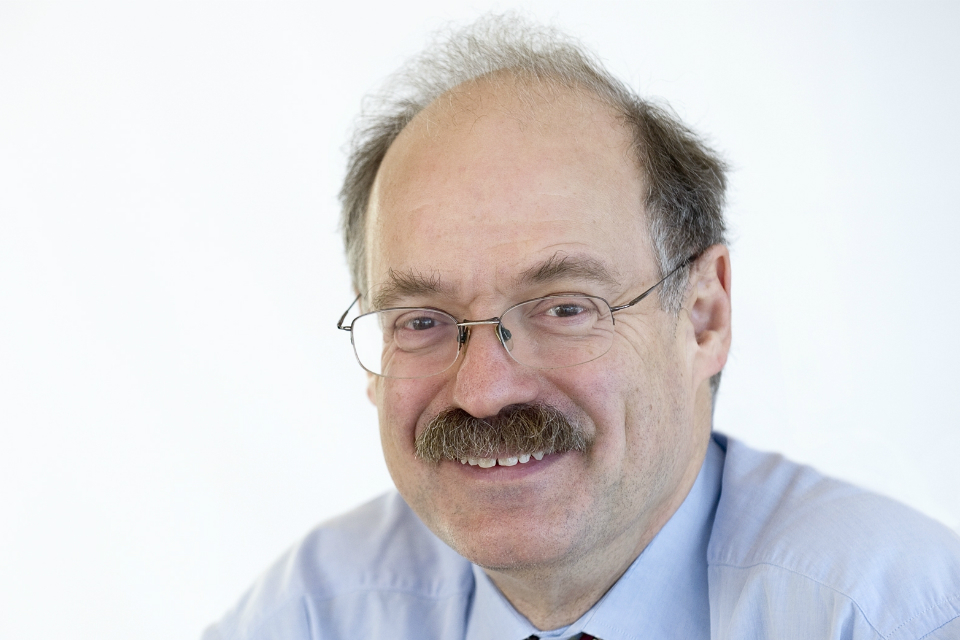There is no easy solution to the problem of the bees
Article by Sir Mark Walport on the proposed ban on neonicotinoid pesticides and the 'precautionary principle'.

This is a longer version of an article first published in the Financial Times.
Lest we forget
As the outbreak of measles in Wales shows, humans have short memories. Measles has always been a nasty illness and a major killer of malnourished children. Doctors of my generation had little experience of diagnosing measles because of its rarity following the successful introduction of measles and subsequently measles, mumps and rubella - MMR - vaccination. Bad science accompanied by bad reporting scared many people from taking up the vaccine, resulting in the disease’s resurgence and long queues to get vulnerable children vaccinated.
Human life is absolutely dependent on nutrition and water. We are in danger of forgetting an important lesson: that the crops on which we depend can be destroyed easily by diseases, pests and weeds.
Potato blight devastated 19th century Ireland, and viewers of ‘The Village’ will have seen how a mildew infection in wheat could precipitate acute poverty. Globalising and emerging new diseases mean even greater impact today. Wheat production across 29 countries in Africa and Asia, accounting for nearly 40% of global wheat production, is threatened by a fungal infection (Ug99 stem rust). An estimated 80% of the wheat varieties they grow will be susceptible.
Plant breeding programmes coupled with pesticides and herbicides have increased crop yields, feeding burgeoning global populations. Pesticides have also helped control deadly human diseases, including malaria, dengue and sleeping sickness.
But once again we are in danger of forgetting. Current concerns about the safety of 1 class of pesticides, neonicotinoids, that were introduced during the early 1990s as safer alternatives to DDT and other pesticides, may lead to a moratorium on the use of these agents across Europe. This carries the danger of a resurgence of crop diseases, reduced crop yields and economic damage to struggling European economies. It adds to the challenge of feeding a growing global population with a changing climate.
Political decisions must be informed by the best evidence and expert advice. The application of the ‘precautionary principle’ can help to guide this, promoting the identification of hazards in advance of action, coupled with a proportionate assessment of whether and how to proceed. The precautionary principle is entirely sensible when applied wisely. But all too often it simply covers a panic reaction: if there is any potential hazard associated with an activity, then it should not be done or, if it is already being done, it should be stopped!
There are important uncertainties about our knowledge of the effects of pesticides on ecosystems and the diversity of insects within them. Insecticides are designed to kill insect pests, but other insects are potentially vulnerable, and we need to apply them in ways that target our insect ‘foes’ rather than our ‘friends’.
The strongest evidence at the moment shows that there is no measurable harm to bee colonies when bees are exposed to neonicotinoid pesticides that have been applied on farms, following official guidelines. Bee behaviour and the development of bee colonies when exposed under laboratory or ‘semi-field’ conditions are harmed however. We don’t fully understand the difference: but the most likely explanation is that the intensity of exposure is higher in the laboratory.
Thanks to our close relationship with the honey bee, the bee has become an iconic symbol of the challenge to pollinators in human-dominated landscapes (though in fact, the humble bumble bee is more susceptible to neonicotinoids). We need to look wider, to the global decline in pollinating insects in general.
But we will be making a serious mistake if we think that the challenge to pollinators will be fixed simply by banning neonicotinoid pesticides. Instead, we need a comprehensive action plan exploring the complex factors behind their decline. We must develop and evaluate methods of increasing the diversity of flowering plants in landscapes increasingly dominated by human cultivation. We need to develop new tools including the use of novel cultural practices, natural plant defence mechanisms, and the use of biocontrol measures for instance, deploying predators. Where there is uncertainty about neonicotinoids we must reduce this by further field work. We must also ensure they are applied strictly according to the guidelines for their use. If we want to reduce our dependence on pesticides and herbicides to deliver the crop yields essential for human health and well-being, we will have to turn to new technologies, using DNA technologies for more effective breeding programmes and the development of transgenic plants.
But lest we forget: human and animal health depends on effective agriculture. The control of malaria, dengue and other important diseases depends on the control of insect vectors. We must also not forget that human and animal health depends on the rich ecosystem of our planet. Scientific assessment and advice is crucial - but is not easy. The job of scientists is to undertake the scientific work and to advise politicians on science - and it is to them that we must turn for the final decisions. These decisions are extremely difficult.